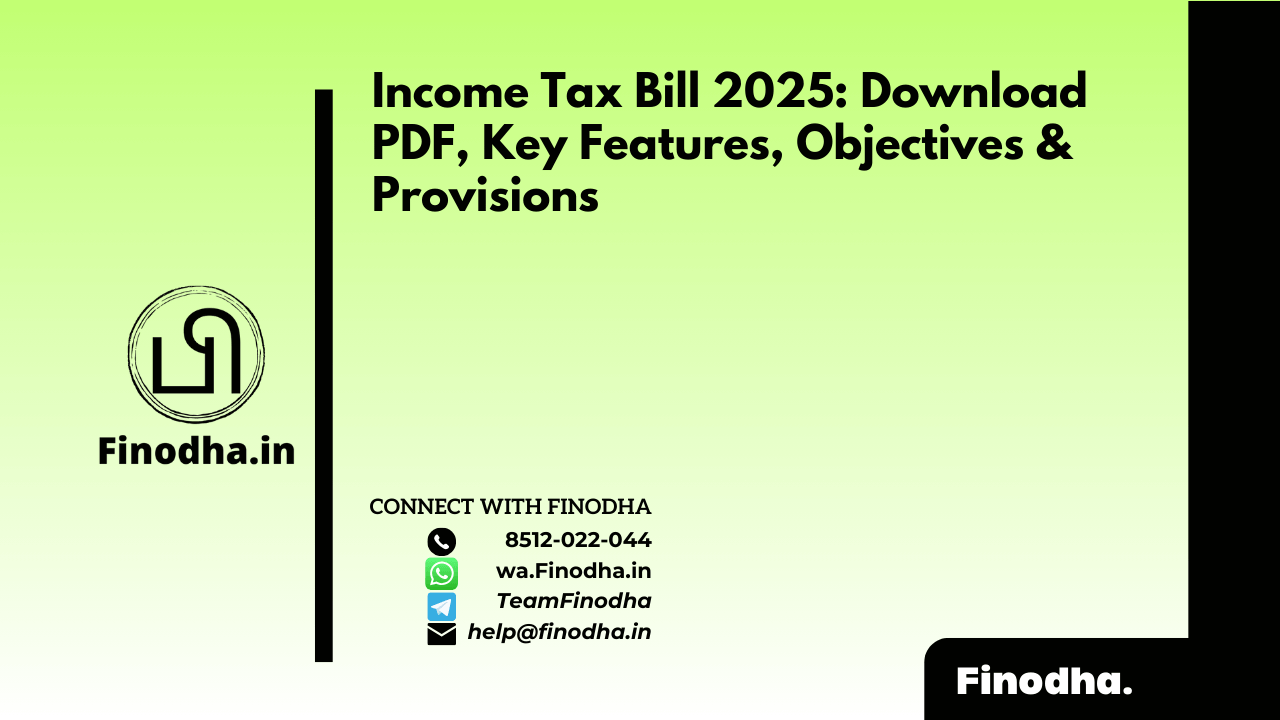Important keyword: Capital Gains, ETF, ITR-2, Trading Income.
Table of Contents
ETF: Exchange Traded Fund
Exchange-traded funds (ETFs) made their debut in India in 2002, offering investors a diversified and cost-effective investment option. Unlike investing in individual stocks, where the risk is concentrated in a single company, ETFs allow investors to spread their risk across multiple companies within a specific sector or index.
Compared to mutual funds, ETFs offer several advantages, including lower expenses and higher liquidity. ETFs typically have lower expense ratios compared to mutual funds, making them a cost-effective option for investors. Additionally, since ETFs are traded on stock exchanges like individual stocks, investors can buy and sell them throughout the trading day at market prices, providing greater liquidity compared to traditional mutual funds.
Overall, ETFs provide investors with a convenient and efficient way to gain exposure to a diversified portfolio of assets while enjoying the benefits of lower costs and increased liquidity.
ETF: Meaning
Exchange-traded funds (ETFs) are investment vehicles that mirror the composition of an index, such as the BSE Sensex or CNX Nifty. They hold a diversified portfolio of stocks in proportions similar to those of the underlying index. ETFs are listed and traded on stock exchanges, allowing investors to buy and sell them throughout the trading day at market prices, similar to individual stocks.
There are various types of ETFs based on the securities they invest in:
- Equity ETFs: These invest in equity shares and related instruments.
- Debt ETFs: These invest in fixed-return securities like bonds and debentures.
- Gold ETFs: These invest in physical gold assets.
- Currency ETFs: These invest in currency instruments.
Tax treatment of income from ETFs is similar to that of mutual funds:
Capital gains on the sale of ETFs are taxed as follows:
- For Equity ETFs:
- Long-term capital gains (LTCG): Gains from holding equity ETFs for over 12 months are taxed at 10% above INR 1,00,000.
- Short-term capital gains (STCG): Gains from holding equity ETFs for less than 12 months are taxed at 15%.
- For Other ETFs (where less than 35% of funds are invested in equity shares of domestic companies):
- For ETFs acquired after April 1, 2023: LTCG is taxed at applicable slab rates, as indexation benefits are no longer available.
- For ETFs acquired before April 1, 2023:
- LTCG: Gains from holding other ETFs for over 36 months are taxed at 20% with indexation benefit.
- STCG: Gains from holding other ETFs for less than 36 months are taxed at slab rates.
Other Income from ETF (Exchange Traded Funds)
Interest Income:
Interest income is considered taxable income under the head “Income From Other Sources” (IFOS) and is taxed at slab rates. This includes interest earned from bank deposits, fixed deposits, savings accounts, bonds, etc.
Dividend Income:
In the case of dividend income, the tax treatment depends on the fiscal year:
- Up to the financial year 2019-20: Dividend income was exempt from tax.
- From the financial year 2020-21 onwards: Dividend income is treated as taxable income under the head “Income From Other Sources” (IFOS) and is taxed at slab rates. This applies whether the dividend is reinvested in the scheme or distributed to investors.
Income Tax on ETF (Exchange Traded Funds)
Income Tax on Trading in ETFs is similar to the tax treatment of mutual funds. The following are the income tax rates:
| Type of ETF | Period of Holding | Long-Term Capital Gain | Short-Term Capital Gain |
| Equity ETF | 12 months | 10% over INR 1,00,000 under Section 112A | 15% under Sec 111A |
| Other ETF | 36 months | Slab Rate | Slab Rates |
ITR Form, Due Date and Tax Audit Applicability for ETF Investors
ITR Form:
Traders should file ITR 2 (ITR for Capital Gains Income) on the Income Tax Website since income from the sale of ETFs is considered Capital Gains Income.
Due Date:
Up to the financial year 2019-20:
- 31st July: For traders not subject to Tax Audit.
- 30th September: For traders subject to Tax Audit.
From the financial year 2020-21 onwards:
- 31st July: For traders not subject to Tax Audit.
- 31st October: For traders subject to Tax Audit.
Tax Audit:
As income from the sale of ETFs is considered Capital Gains Income, taxpayers do not need to determine the applicability of tax audit under Section 44AB.
Carry Forward Loss for sale of ETFs
Gain or loss on the sale of ETFs is classified as either Capital Gain or Capital Loss. Here are the rules for setting off and carrying forward losses on the sale of ETFs:
- Short Term Capital Loss (STCL):
- STCL can be set off against both Short Term Capital Gain (STCG) and Long Term Capital Gain (LTCG).
- The remaining loss can be carried forward for up to 8 years and set off against STCG and LTCG only.
- Long Term Capital Loss (LTCL):
- LTCL can be set off against Long Term Capital Gain (LTCG) only.
- The remaining loss can be carried forward for up to 8 years and set off against LTCG only.
Read More: Tax on Unlisted Shares
Web Stories: Tax on Unlisted Shares
Official Income Tax Return filing website: https://incometaxindia.gov.in/




